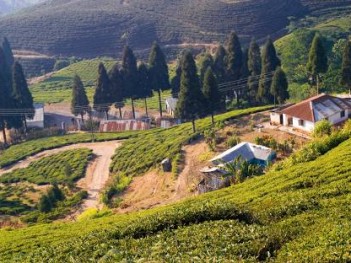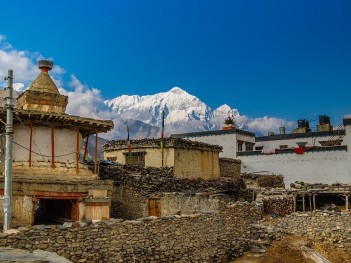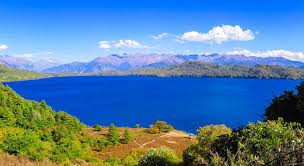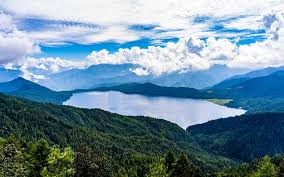Description
RARA
Visit Nepal's deepest Lake, the Rara, hiking through lovely Juniper forests and enjoy the spectacular landscape that surrounds this pristine lake.
Rara Lake at 2,990m, is the deepest lake in Nepal and also one of the most pristine. Surrounded by green hills on all sides, covered in juniper trees, one can camp by the sparkling waters of the lake. Go boating in the clear waters, hike to nearby hills for a closer view of the mountains and lake, get acquainted with the charming local people, or just walk around the large lake watching out for wild flowers or a rare bird along the way.
The park is surrounded by alpine coniferous vegetation and offers a representative sample of the region's flora and fauna. More than 500 different kinds of flowers, 20 species of mammals and 214 species of birds can be observed in the Rara National Park. As for life in the lake, the snow trout is one of the fish varieties recorded here so far.
The rich vegetation of the park supports diverse species of wildlife including the endangered red panda, musk deer, Himalayan black bear, leopard, jackal, Himalayan tahr, Yellow-throated martin, wild dog, wild boar, common langur, rhesus macaque and the common otter. During winter the park abounds in bird varieties like coots, great-crested grebe, black-necked grebe, red crested pochard, mallard, common teal, merganser and gulls. Migrant water fowl and gallinaceous birds can also be seen during certain seasons.
Rara in the far north western part of Nepal is the smallest national park in the country, while the Rara Lake is Nepal's biggest lake. The lake is 167m deep at some places, and drains into the rivers Mugu Karnali via Nijar Khola. Chuchemara Hill at 4,087m is the best vantage point to enjoy magnificent views of the deep blue lake, the forested hillsides and the snow capped peaks.The journey begins with a flight from Nepalgunj to Jumla, from where it is a 2-3 days hike to reach Rara Lake. Jumla is known for its fine apples and walking through these orchards can be an interesting experience.
The trek leads through remote countryside toward the Tibetan border. A journey into the Jumla region and the beautiful Rara Lake is probably one of the most fascinating treks in the Himalaya undisturbed by hordes of trekkers as one finds on other trek routes. The best time to visit the park is in the spring, summer and autumn. As more people are now visiting the park, tourist services and infrastructure have developed over the years. However, for a great experience, it is still advisable to be self-sufficient if you are traveling alone. Lake Rara is also a popular pilgrimage site for Nepalis.
Itinerary
- Morning drive 6am Kathmandu to nepaljung breakfast and lunch on the way and we continues drive and dinner nepaljung local hotel and overnight at hotel.
- After breakfast drive to kalikot via surkhet and dolakha for lunch on the way we continues drive and dinner kalikot local hotel and overnight At hotel.
- After breakfast drive to talcha 8-9hrs to reach talcha airport then hiking 2.30hr to rara lake overnight at local hotel.
- After breakfast explore and visit rara lake and village hiking at murma top around 4hrs up and down hill, boating at morning time and lunch. before 12 am jungle walking and village tour and dinner and over night at hotel
- After break fast back to talcha airport lunch on the way then drive to jumla khalanga bazar dinner and overnight At local hote
- After breakfast drive to surkhet lunch on the way and our destination surkhet dinner overnight at local hotel with shearing room
- After breakfast then drive to Kathmandu lunch on the way and evening at Kathmandu
Inclusions/Exclusions
What's Included
- Privet vehicle
- Breakfast, with shearing room
- English Speaking driver
What's Excluded
- Personal expenses any bottle drinks bar bill
- Boating at rara lake if you want make it
- Rara national park entrance fee pr per person
Similar Packages

ILAM TOUR
Walk through the tea gardens enjoy sightseeing, take short hikes or head for the nearby woods.A...

MUSTANG TOUR
Mustang VillageMustang is actually a district in the western part of Nepal. It is divided int...

MANANG TOUR
...





